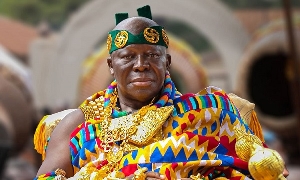Opinions of Tuesday, 27 October 2009
Columnist: Bentil, Kofi
Oil revenues commission-How Ghana can avoid the resource curse
*Kofi Bentil *
Ghanaians have been rejoicing over the country’s oil find. However, many are aware that finding oil can actually lead a country into trouble, a phenomenon called “Resource Curse. Many including this writer have been wondering how we can avoid the resource curse.
It is my view that a major requirement for avoiding the resource curse will be to set aside politicians in the control of oil money. We must also ensure that the places from where the oil is drilled get a clear advantage in the distribution of the resulting wealth. This is informed by our experiences in mining other minerals, usually the indigenes suffer most and other parts of the country seem to benefit more. The negative effect on the environment and health of the drilling sources must be alleviated by directing more of the resources there. There must also be a conscious effort to make the people benefit more from their lands wealth for their own sake, for equity’s sake and for the national interest.
**
*Their own sake*: It is only fair. In the 100 or more years of mining Gold in Ghana, very few people have become very rich because of Gold, but there are many cases of people who have become poor and destitute through loss of lands etc from mining. It is only fair that if a person’s ancestral land gives the rest of us wealth, the least we should do is thank them with good returns. Unfortunately we end up doing the reverse; we saddle them with the worst effects. We must not let this happen with the oil find.
*For equity’s sake*: it is just right that there be equity in the spread of the wealth from natural resources. The case hitherto where the western region which yields most of Ghana’s wealth, (Gold, Timber, Cocoa, food, and more) is one of the most deprived in terms of resources and infrastructure, whilst Accra which yields very little apart from being the capital gets most of the development is simply anomalous!
Equitable distribution will simply mean that every place gets even treatment, even further, equity will say, if any place deserves more, it must be the source of the wealth.
*For national interest sake:* if we develop the drilling sources well we will create the needed infrastructure to properly evacuate the oil efficiently and safely, that is in everyone’s interest! The opposite is true, if we deprive those places of roads and schools and other infrastructure, we will not have the wherewithal to properly take out the resource, which will affect our own returns.
If the people in the immediate environ of the oil fields are not well educated they would not be able to make a good living for themselves and would tend to rely on the oil industry for menial jobs. Invariably they will be dissatisfied and will sabotage the installations, and ultimately create problems for all of us, which is a feature of the resource curse. If they are well educated they can even make a living away from the oil industry and surely develop the area well, if they work in the oil industry, they will be high in the hierarchy and well paid, people do not usually sabotage their source of living, they will safeguard it, and all of us will benefit. Clearly there is a national interest in returning more to the source of the wealth.
*Handling Oil Revenues*
We must fashion a mechanism by which the banking and application of oil money will be as transparent as possible and subject to as much public control and scrutiny as possible. The problem is how. Fortunately there are a few ideas already in place in other countries which may help, but before specifics I would like to build the structure and then figure out the whole picture.
The structure must be based in law. A law which stipulates that all revenues from oil be deposited in a particular account, my guess would be that the Bank of Ghana will be the best place for this account. This law must also stipulate clearly the circumstances under which such monies will be withdrawn, this leads us to the next level, a body to control that fund.
The law must set up a body of imminent Ghanaians to be appointed through various means which could look like the following:
-they must be drawn from each of the ten regions of Ghana.
-two people must be appointed by the President, to ensure that office has representation.
-two more people must be from the region or district from where the oil is drilled.
That makes a total of 14 persons. The last one I leave to others to suggest.
An odd number of persons is good, to ensure there will always be a winner in case of a vote. I propose that this body sits four times a year, every quarter to make decisions and review projects and proposals. It will need a permanent secretariat to process things.
This body should elect its chairperson at its first meeting, everyone should have a vote
The law must prescribe that this body shall govern the use of all oil revenues and they alone shall determine which projects and where will be accepted and how the oil revenue shall be spent. They shall operate under this law and shall not depart from its provisions. If they depart from it, any citizen should be able to sue in a High Court to compel them to obey the law and reverse any decision which is against the law.
Such an arrangement allows for broad participation in the use of oil wealth and the members will have to weigh options before coming to decisions, they can be lobbied by citizens and politicians alike. They can receive proposals for various projects and decide on the merit of each.
The law must however make some provisions in favour of the places where the oil is drilled, for example, not less than a 10% (or as decided) of the total revenues should be spent in the drilling towns. Set up a scholarship scheme whose aim should be to provide education to the indigenes as a way to raise their expertise and levels of awareness to enable them manage the complexities of their areas better than otherwise.
Such provisions will help the whole nation to avoid the situation in the Niger delta of Nigeria where the indigenes are sabotaging the oil installations because they have been neglected in the distribution of oil wealth.
I propose we call the body, The Ghana Oil Revenues Commission.
Fortunately there are models very similar to this in operation in some Scandinavian countries. Interestingly in Ghana we already have something close, though imperfect – the Ghana Education Trust Fund (GET FUND).
The GETFUND is arguably the most powerful fund in Ghana today, and is quite insulated from politicians. Although it has its problems, it is open to citizen’s challenge although few if any have taken them on in the courts. The oil revenues commission is therefore not an entirely new invention. If we tweak it properly we must be able to avoid the resource curse.
Juan Pablo Perez Alfonzo called crude oil “the devils excrement” because of its potential to mess everything up. We in Ghana are blessed with many examples which should set us thinking through the issues to ensure we do not repeat the mistakes of others. If we fail to do this we are of all people the most to be pitied, we have been sufficiently warned, and we have all the men and motivation to do better than others have.
May our oil be the true “Black Gold” which brings the Black Star of Africa more blessing than Gold brought the Gold Coast.
*Kofi Bentil is a Policy Analyst and Senior Fellow, Imani Center for Policy and Education and **www.AfricanLiberty.org*












